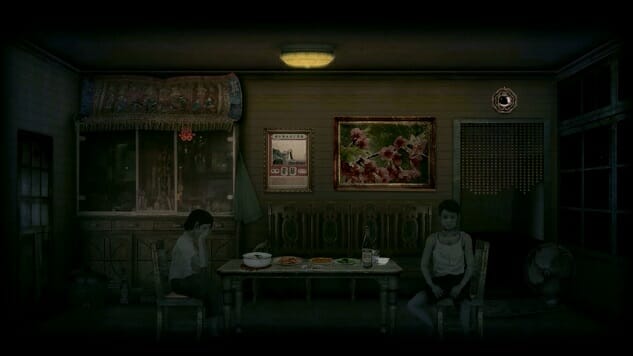Detention Portrays the Tragedy of Dissent, Revenge and Unintended Consequences
Games Features Detention
Detention, a horror game from Red Candle Games that debuted in 2017 but was released on the Switch last March, is not just a story about dissent and revenge. It’s also about their unintended consequences, and the loss of innocence at the hands of someone who abuses their power over you.
Like many horror games, the events of Detention serve as a metaphor for the protagonist’s unprocessed trauma. Set during the period of martial law in Taiwan known as the White Terror, it takes place in the 1960s at a remote, mountaintop high school in Taiwan, where a typhoon has trapped a young student named Fang Ray Shin. While the game’s format is familiar, its execution takes a risk by humanizing the troubled lead character even as the events of the game suggest she’s at fault for its central conflict. As the storm approaches, and she begins to make her way through haunted halls and empty classrooms, she must come to terms with the pain of her troubled home life and the bizarre absence of her teachers and classmates.
Fang, as it is hinted in cryptic leitmotif, is both the perpetrator and, in more than one sense, victim of the events of Detention. As she avoids ghosts and tries to escape the school, we’re given a look into both the memories of her school life and her increasing isolation and loneliness as her parents’ marriage falls apart. Vulnerable, she turns to a school counselor, who begins to woo her in secret, manipulating her into sneaking out at night to take walks with him in the woods. After he is confronted by another teacher at the school, he rejects Fang, and she is heartbroken. With revenge in mind, she turns him into the authorities, along with other members of his secret contraband book club, in order to get him fired. Instead, he is executed, a classmate is sent to prison, and another teacher flees in self imposed exile. In her grief, she jumps off the roof of the auditorium, doomed to relive the cycle of her pain until her soul confronts and admits what she did.
While the “teenage girl scorned” trope is one that’s often misused and weaponized, in Detention it reflects a dual edged tragedy. Not only is the pain and youth of Fang exploited by her counselor, even as she’s surrounded by the stringency of martial law, but she is naively unaware of what the consequences of her actions will be. Chances are, if she’d known Wei would go to prison and Chang would be killed, she might not have turned them in. And despite the uniqueness of the circumstances, Fang’s pain is familiar and sympathetic. She is lonely, desperate for affection, and feels lost amid her parents’ failing marriage. At one point, in the many surreal, dream-like flashbacks to her old home life, she talks about how happy and inviting her home used to feel, and how lonely and empty it is now that her parents are fighting. For a second, you can feel how lost she must be. The secret meetings she had with Mr. Chang in the woods each evening gave her something to look forward to, maybe the only positive escape she had in her life. She had so little happiness and as misguided as it was, that forbidden relationship was all she had. For a moment, you can understand why she lashed out, making it all the more tragic that her desire for justice backfired into full blown revenge.
In establishing this explanation for Fang’s actions, Detention is deeply humanizing, acknowledging the naivete that personifies pre-adulthood, and even in tragedy, framing it with some modicum of compassion. I feel for her. I remember what it was like to be a teenage girl in an unhappy home, to feel so unloved and desperate for affection that you’ll take whatever you get. When someone takes that away from you, and when you realize the person who was supposed to protect you took advantage, it’s soul shattering. There are no winners in Detention, only villains and victims, with some overlap in between.
As Detention wraps up and Fang’s spirit processes the memories of her fatal betrayal, her cycle of purgatory ends and her soul finds redemption, finally moving on from the grounds of the old high school and into the afterlife. Her old classmate and book club member Wei, having been pardoned and released from his prison sentence, returns to the site to come to terms with the past, sitting in the desk of his old classroom as Fang appears, sharing a quiet moment that briefly mirrors the ones they had before book club all those years ago. In one last tragic brushstroke, Wei reminds us that even in freedom, there’s nothing one can do to change the past. And in its final tragedy, the game ends.
Holly Green is the assistant editor of Paste Games and a reporter and semiprofessional photographer. She is also the author of Fry Scores: An Unofficial Guide To Video Game Grub. You can find her work at Gamasutra, Polygon, Unwinnable, and other videogame news publications.